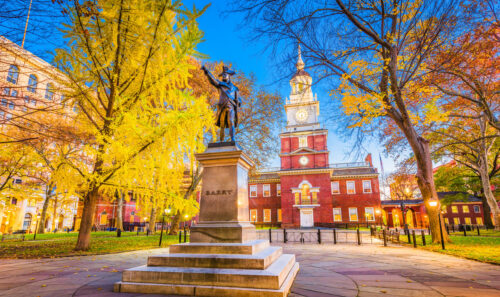In the midst of struggles and crises all across our nation, our friends and colleagues share what they think we should be reading to understand this moment and to fortify ourselves against the influence of ideologues and the movements that would undermine a strong civil society. The first in a series.
The question of how we should understand the times in which we live is always an important one, but it has special urgency in America today. Ideologues of various shades have their answers, of course, but this is not a question we can afford to let them answer on our behalf, no matter how well-intentioned they may (or may not) be. The health, and perhaps the very existence, of an independent and free civil society is at stake. We therefore asked some friends of Philanthropy Daily to recommend a single book, article, or speech they think has particular relevance right now. We will post these “Readings for Troubled Times” on a weekly basis for as long as the recommendations keep coming in. We hope you find them helpful.
Jeremy Beer
Editor, Philanthropy Daily
What you should read: “Live Not By Lies,” by Aleksandr Solzhenitsyn.
Why: How does a good man resist evil when he is powerless? The final communiqué Solzhenitsyn issued to the Soviet people on the eve of his 1974 arrest and expulsion to the West was a short essay explaining how to do it: Live not by lies! The Soviet system was built on lies, and on the willingness of the people to pretend that these lies were true. But the one thing that even the most demoralized person can do to fight the system is to refuse its lies, no matter the personal cost. Don’t write or say what you know is untrue. Don’t allow yourself to be seen doing anything that gives the official liars reason to think you are on their side.
“There are no loopholes for anybody who wants to be honest,” said Solzhenitsyn. “On any given day any one of us will be confronted with [a choice]. Either truth or falsehood: Toward spiritual independence or toward spiritual servitude. And he who is not sufficiently courageous even to defend his soul—don’t let him be proud of his “progressive” views, don’t let him boast that he is an academician or a people’s artist, a merited figure, or a general—let him say to himself: I am in the herd, and a coward. It’s all the same to me as long as I’m fed and warm.”
We live in a time of ideological madness, with commissars and scoundrels demanding allegiance to lies, and testimonies to untruth. If, out of fear, you give them what they want, they will own you forever. Solzhenitsyn knew. So had we better.
Rod Dreher
Author, Live Not By Lies (forthcoming, Sentinel, September 29, 2020)
What you should read: “Think Little,” by Wendell Berry.
Why: In 1969 Berry warned that “popular causes in the electronic age” have a tendency to become “far too much” like “fads.” Social media has only made those tendencies more pronounced. Berry’s recommendation, to set our minds and hands “decisively against what is wrong with us,” remains practicable and wise.
Jeffrey Bilbro
Associate Professor of English, Spring Arbor University
Editor-in-Chief at Front Porch Republic
What you should read: The Rebellious Life of Mrs. Rosa Parks, by Jeanne Theoharis.
Why: Theoharis’s biography reveals Rosa Parks’s long and deep civic engagement. She is much more than the moment on the bus about which we all know. We can learn a lot from Rosa Parks the woman by going beyond the myth to understand her intentional, intelligent, peaceful advocacy.
Kathi Badertscher
Director of Graduate Programs, Lilly Family School of Philanthropy
What you should read: Godfather of the Kremlin: Boris Berezovsky and the Looting of Russia, by Paul Klebnikov.
Why: Godfather of the Kremlin was published in 2000 and cost the author his life. He was killed shortly after publication, which in my view is an attestation of its accuracy. In the book, Klebnikov, a longtime editor at Forbes who had spent much of his professional life in Russia, describes what happens when elites fail and nations fall apart. It’s ugly. In Russia in the 1990s everything was up for grabs, and criminal syndicates, usually with the backing of former military and KGB men, despoiled the country. Some made enormous fortunes. But average people were starving as murders and deaths of despair soared. The chaos was caused by a power vacuum that eventually had to be filled. As American cities emerge from quarantines into protests and riots, it’s been helpful reflecting on what can happen when sovereign power breaks down.
Chris Buskirk
Editor and Publisher, American Greatness






